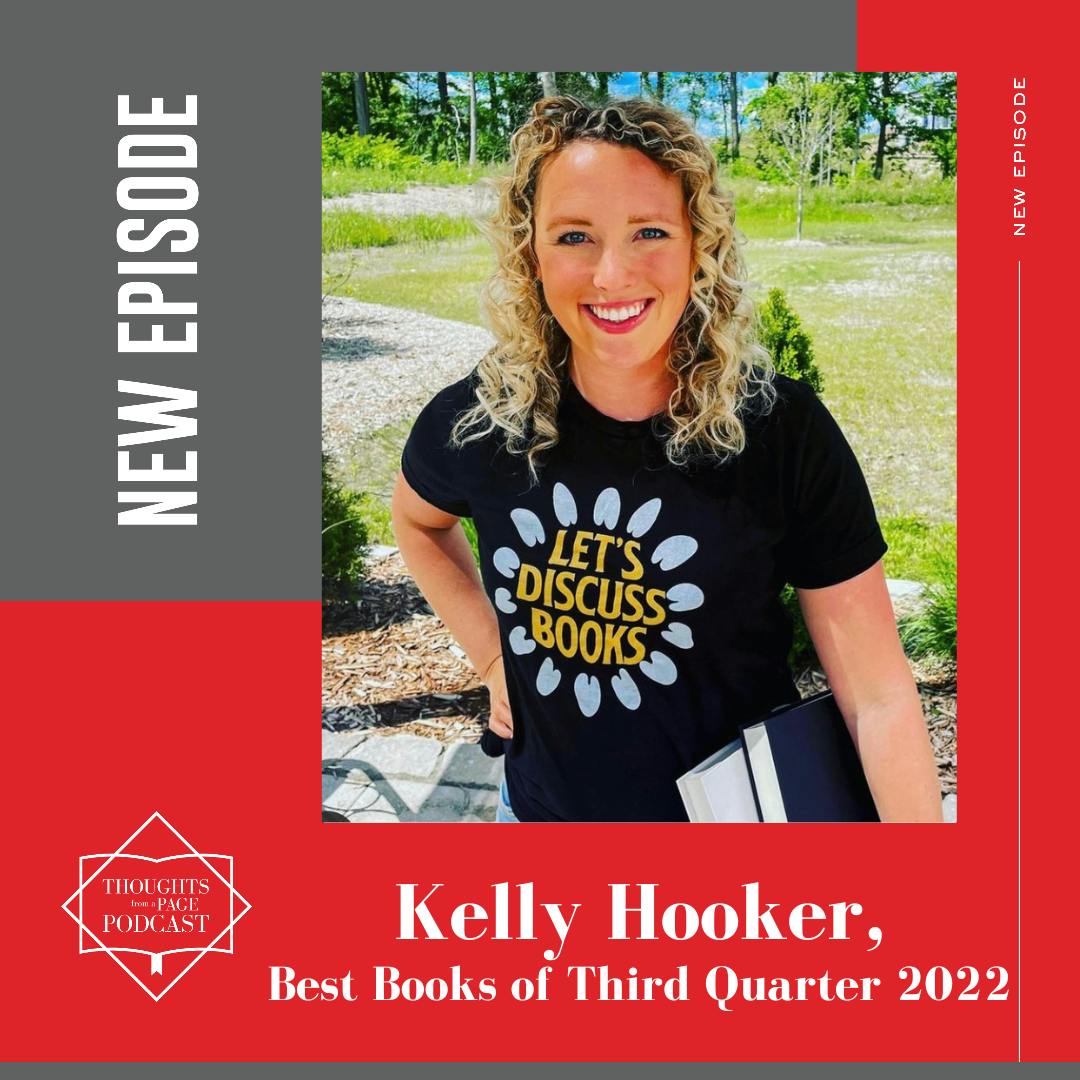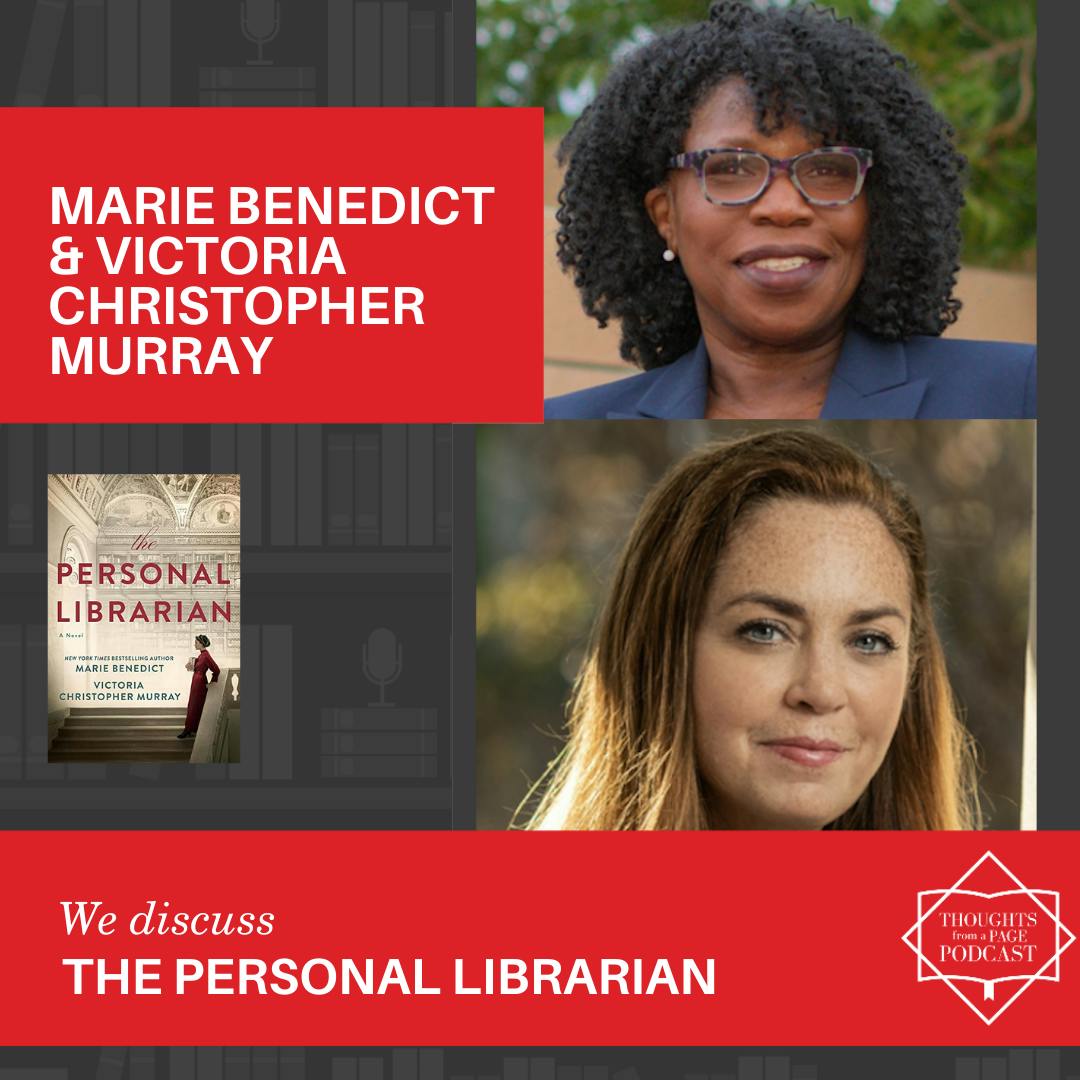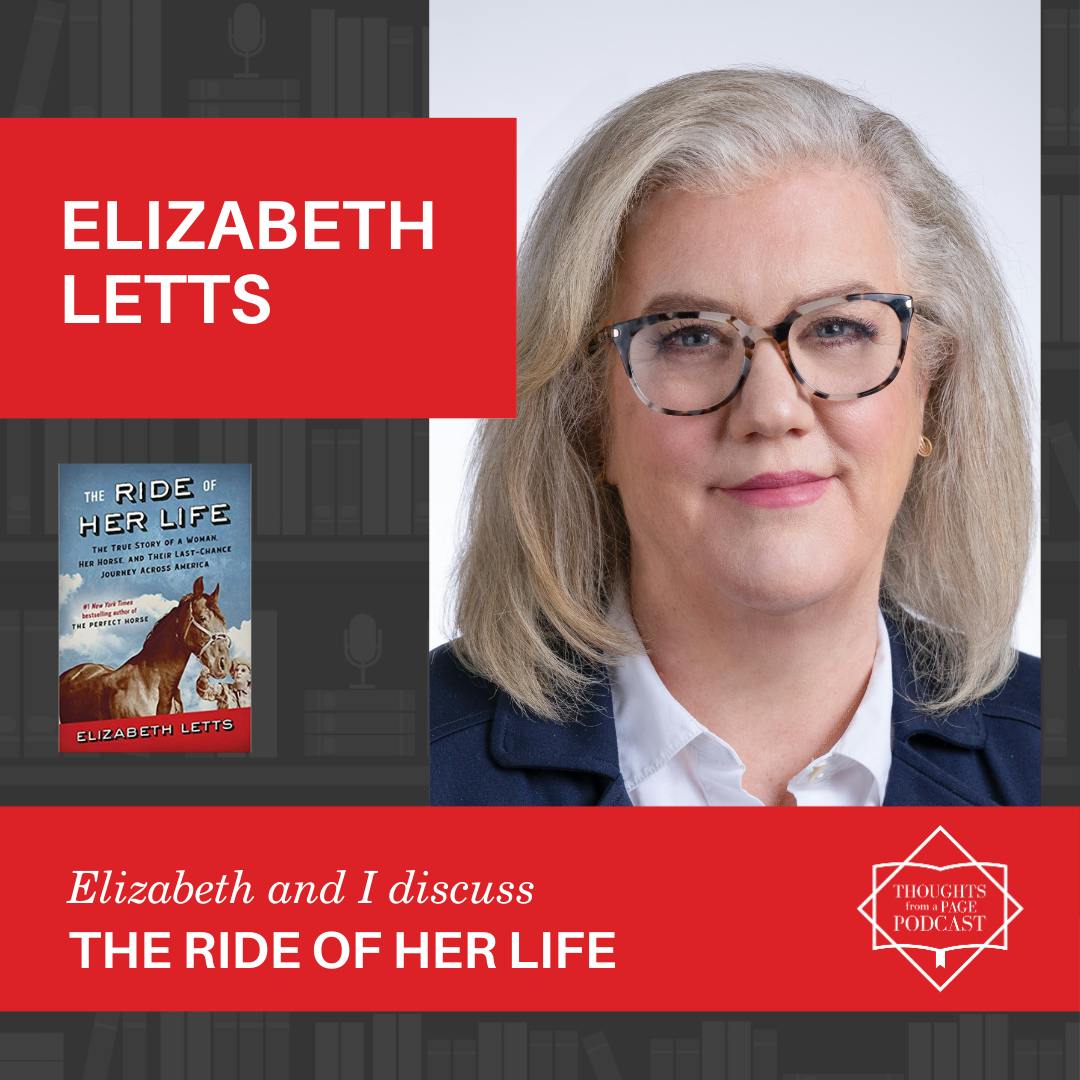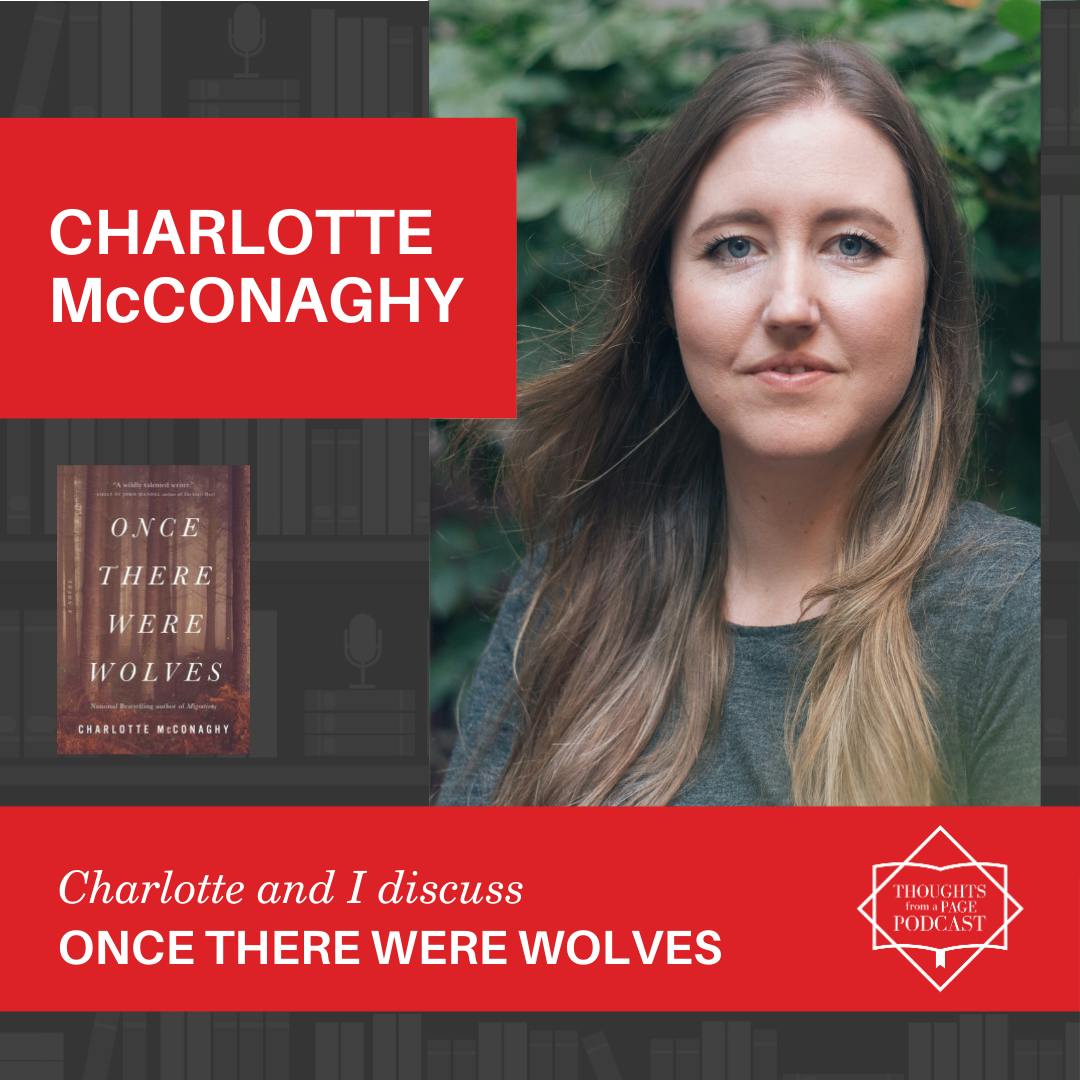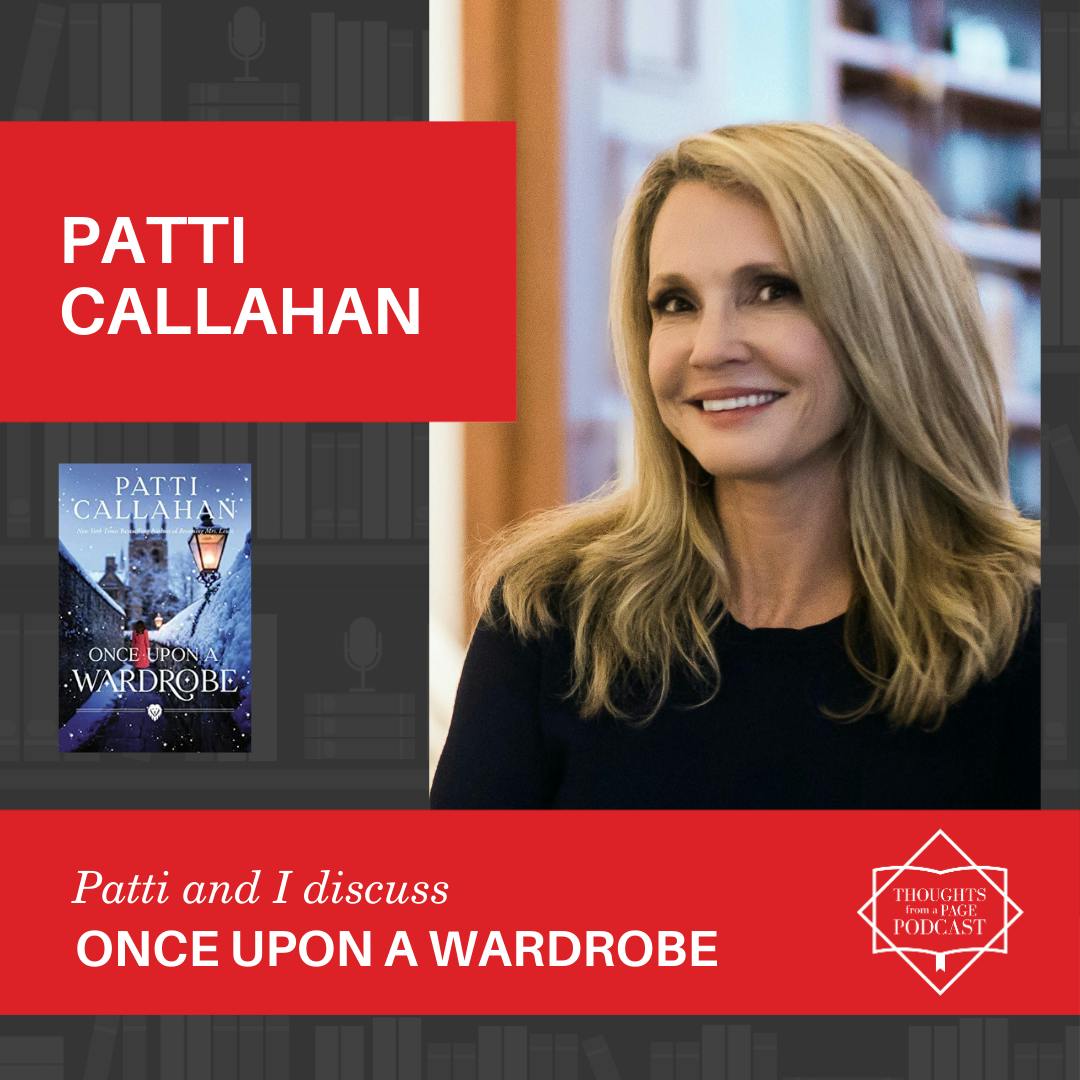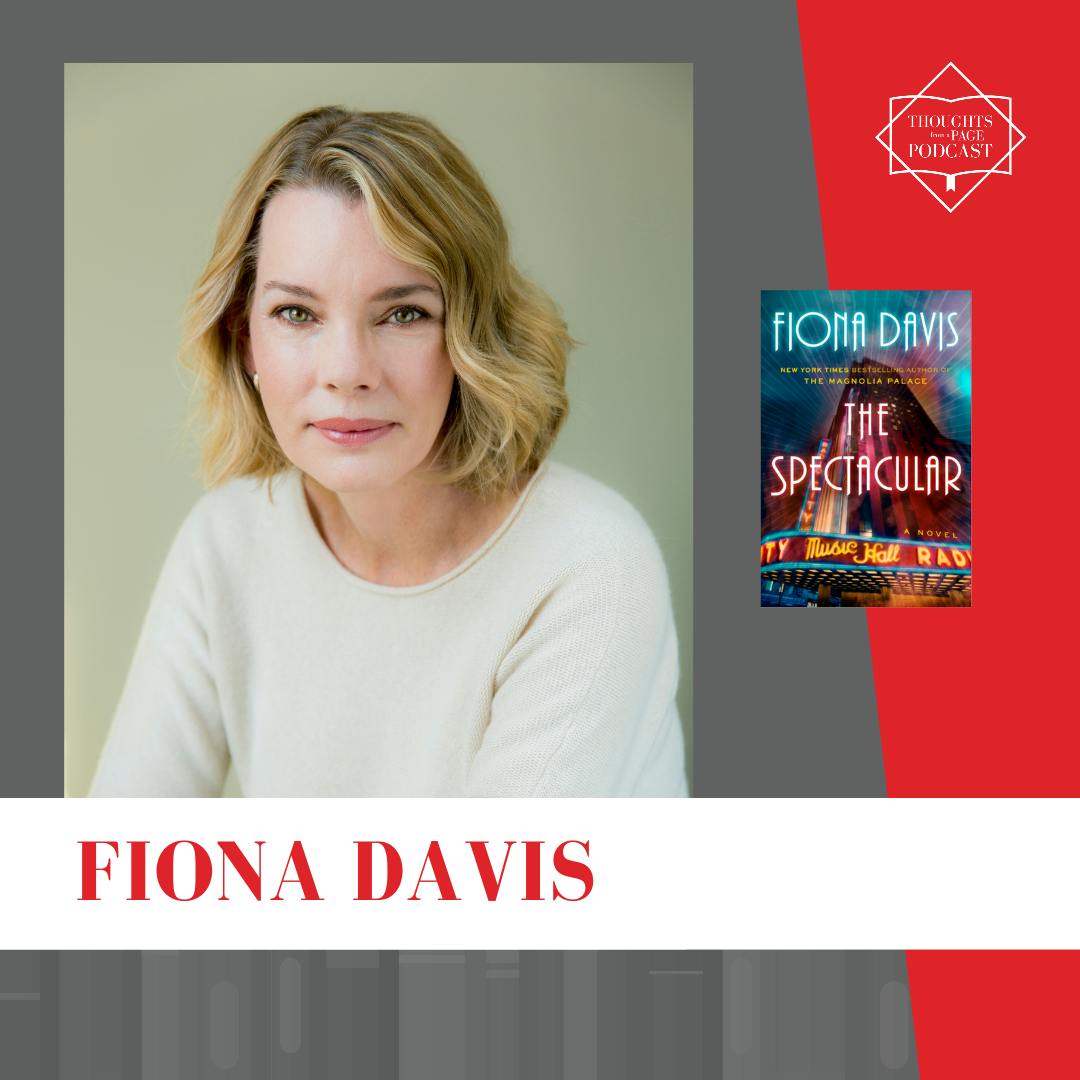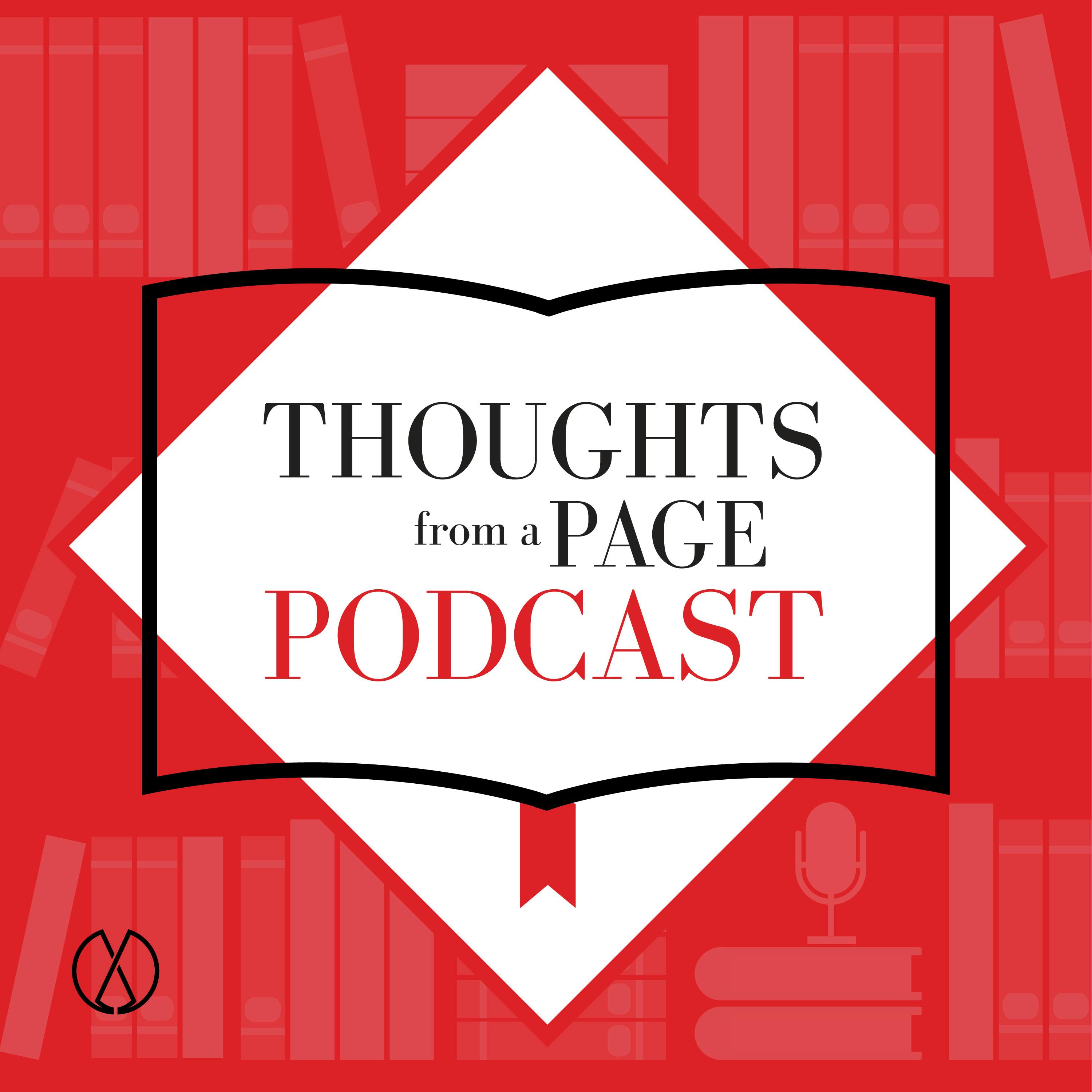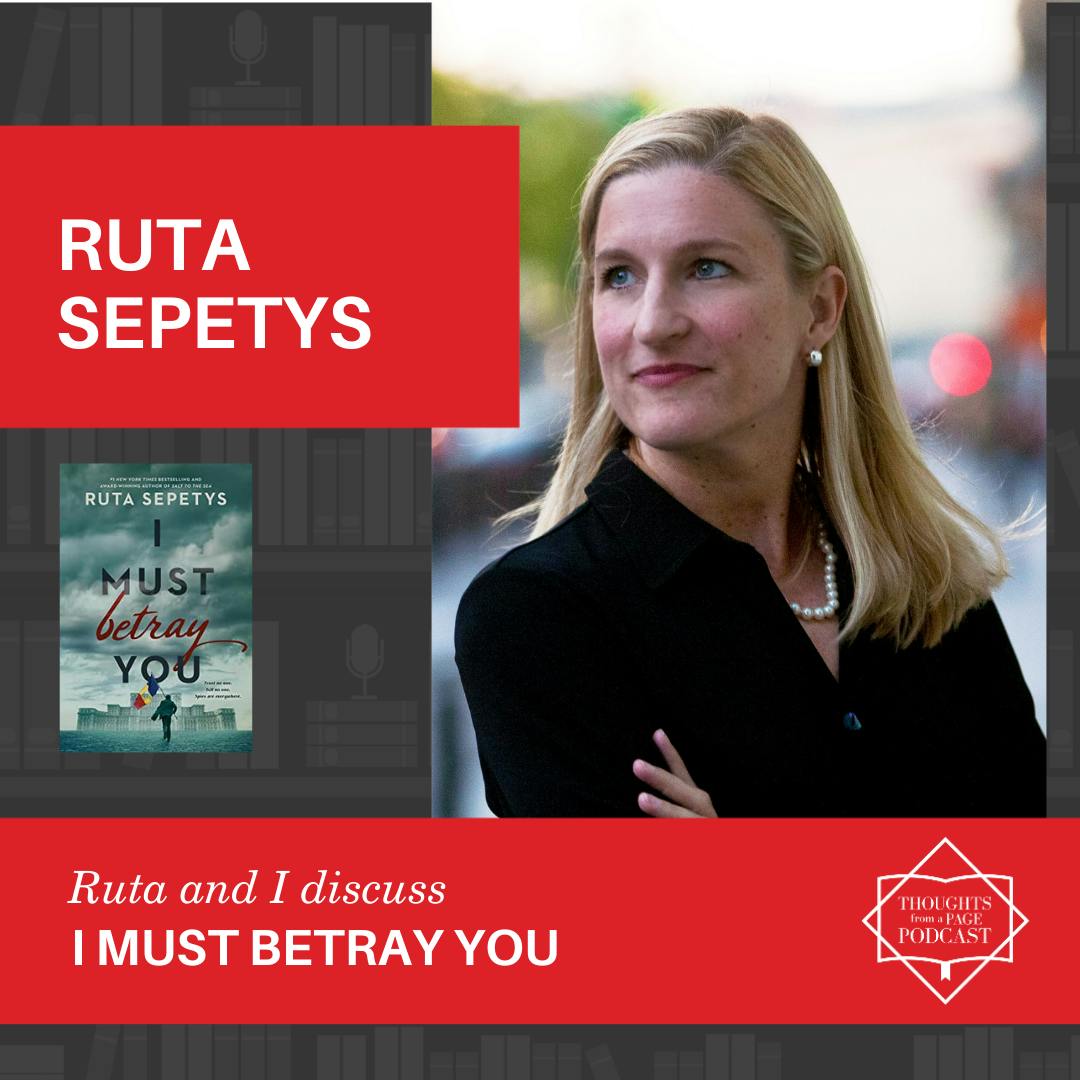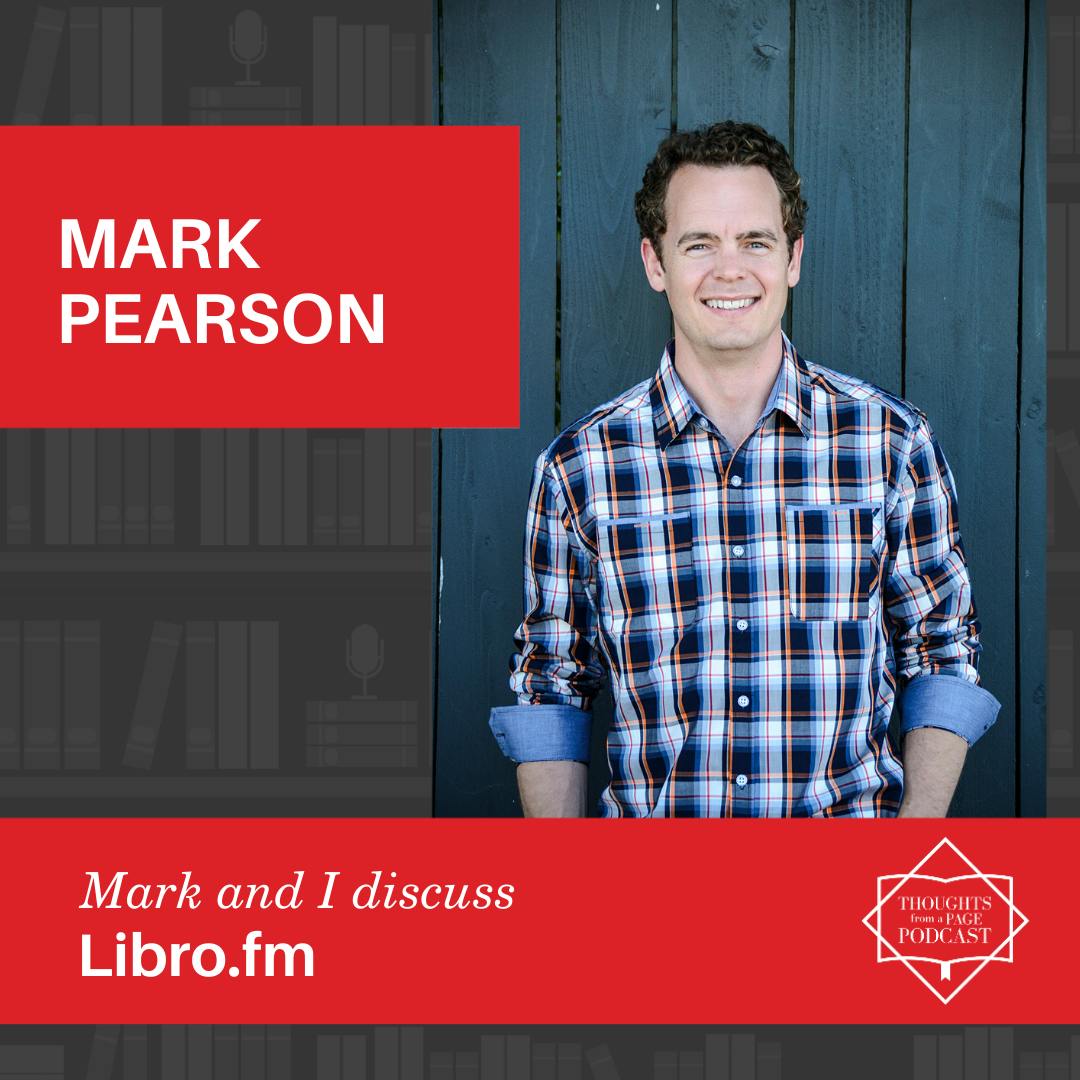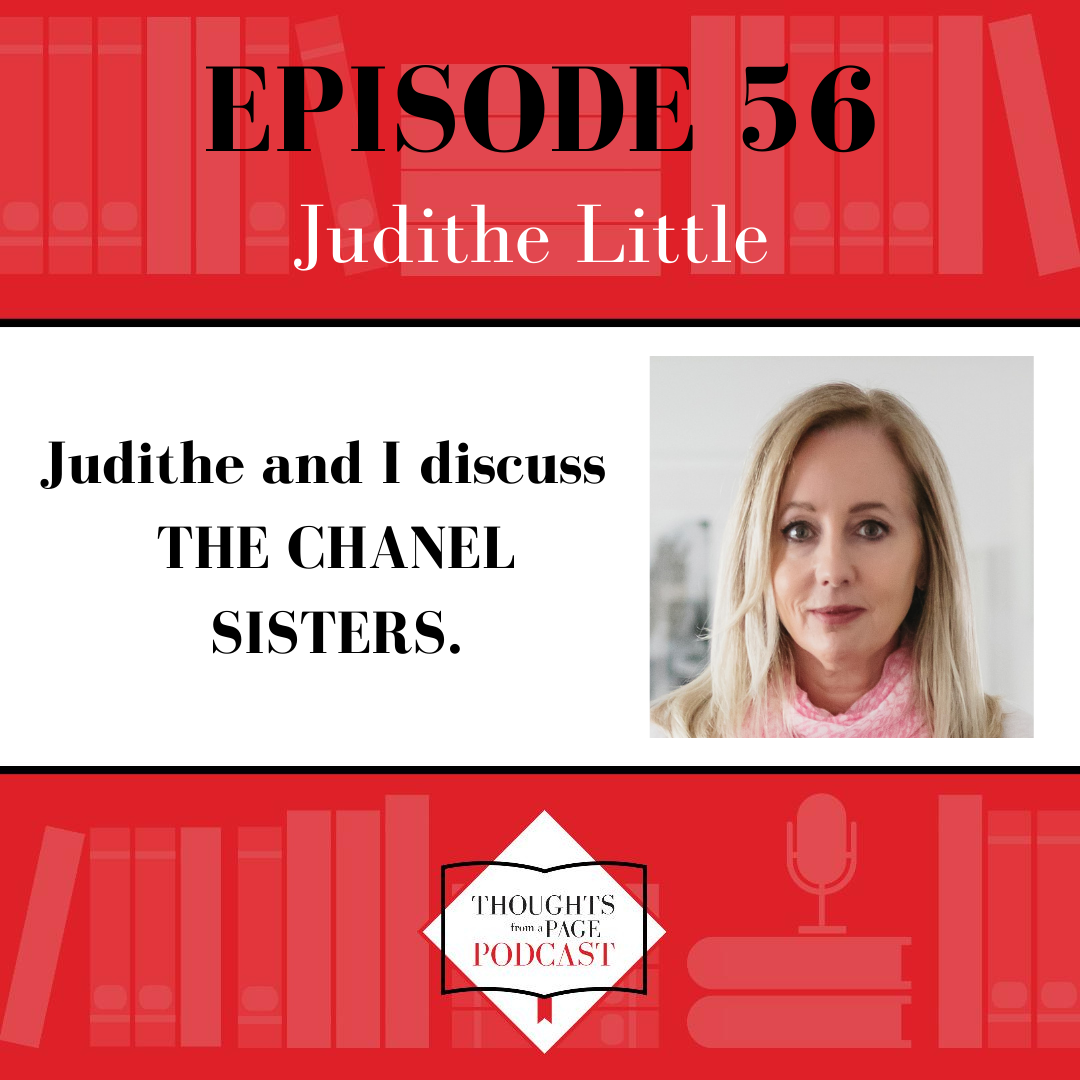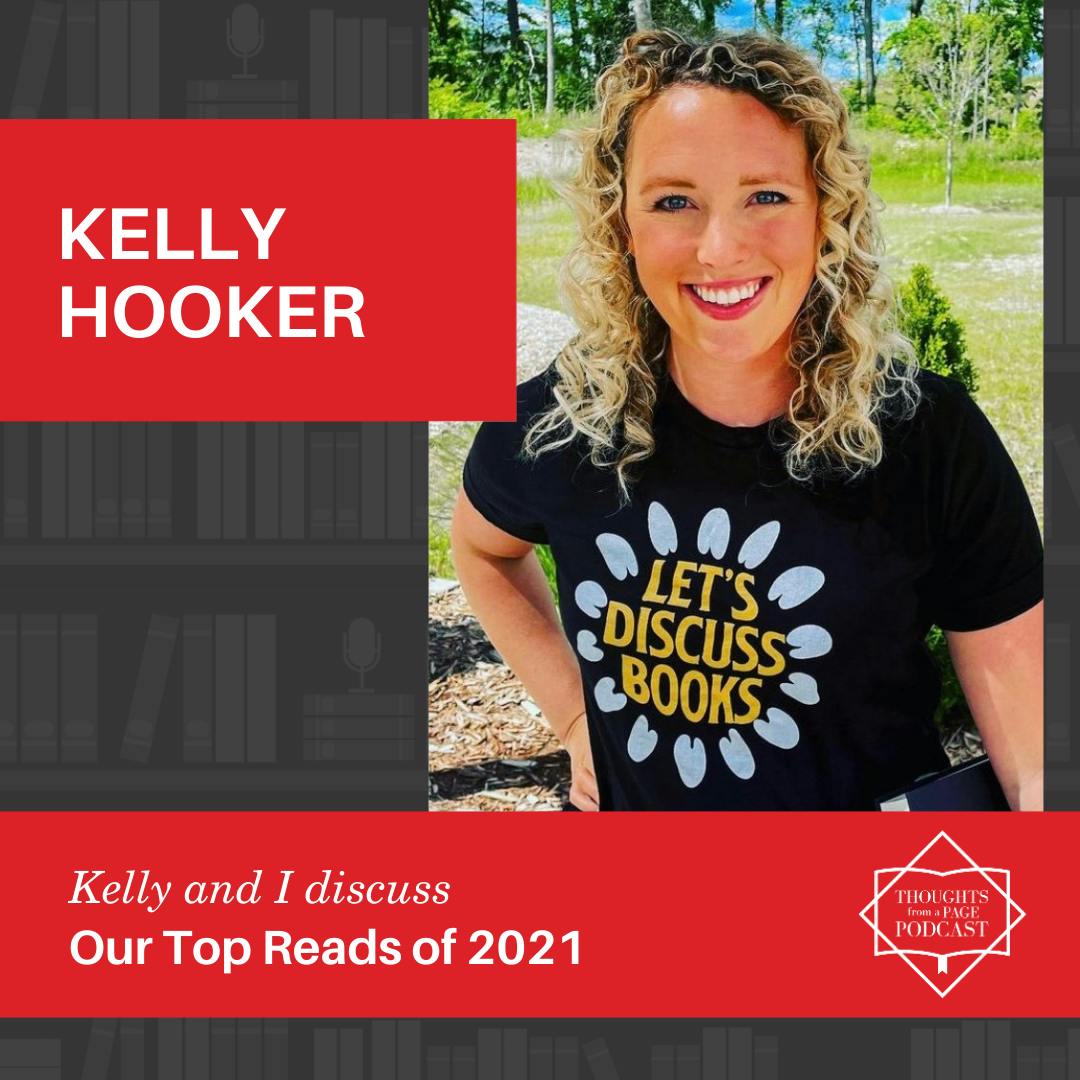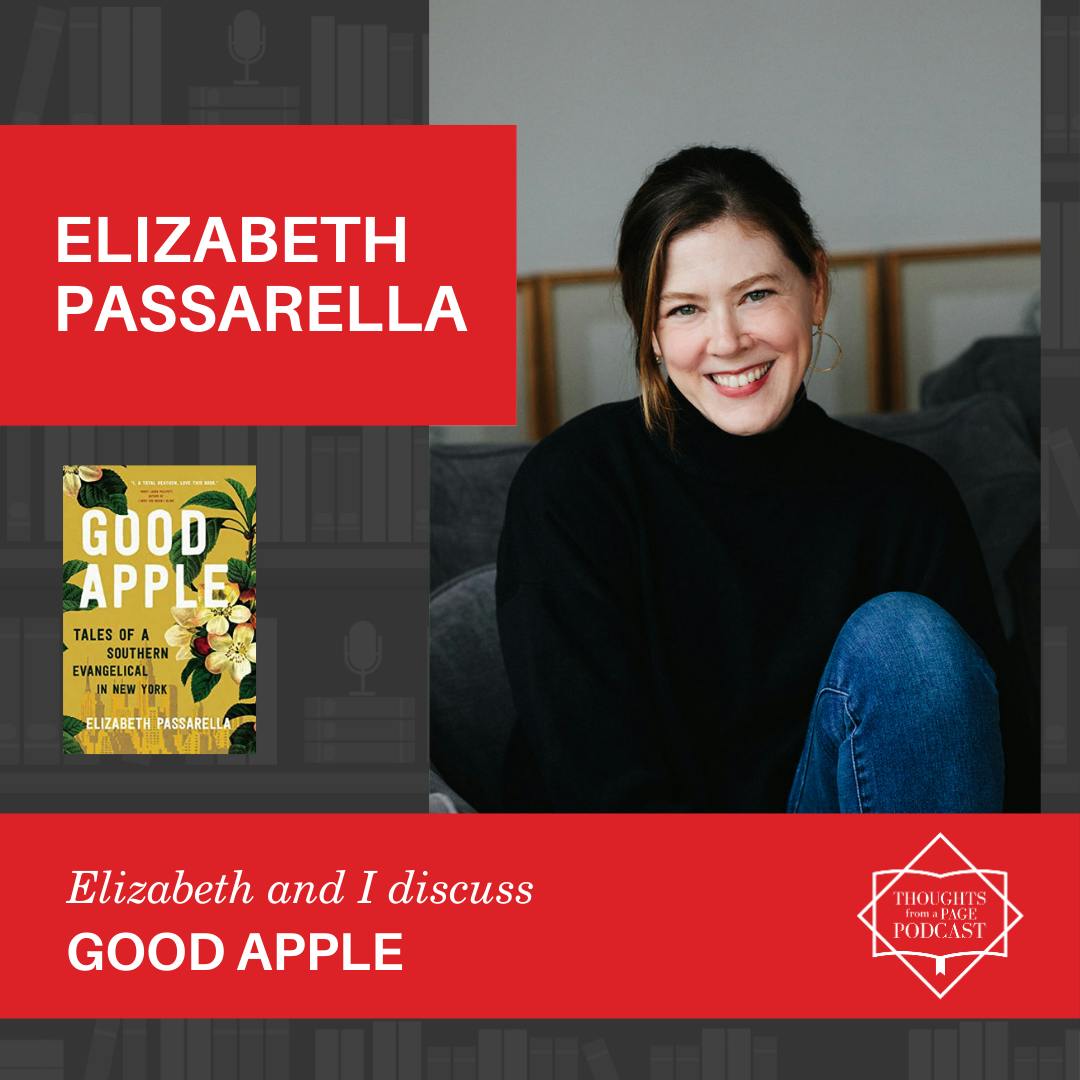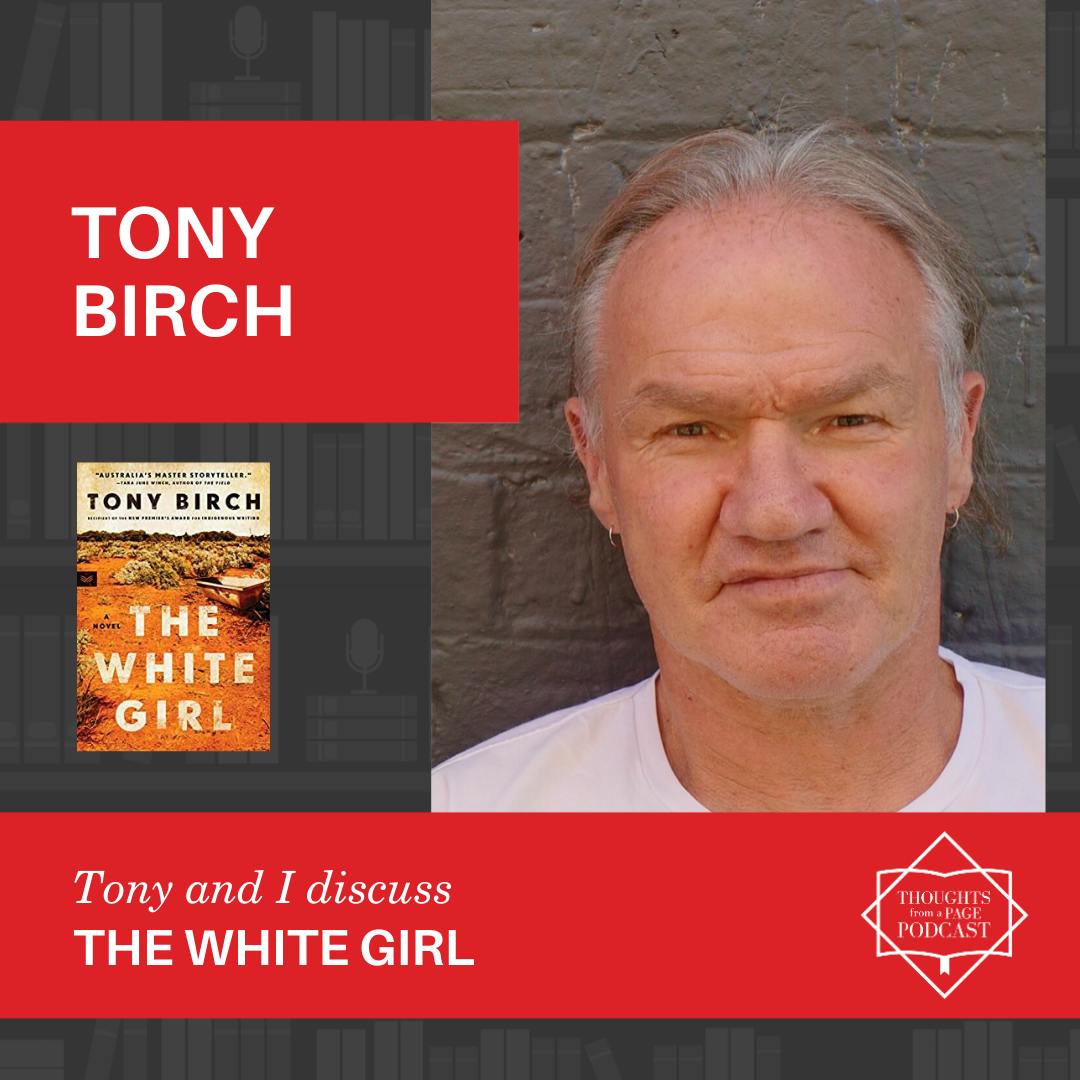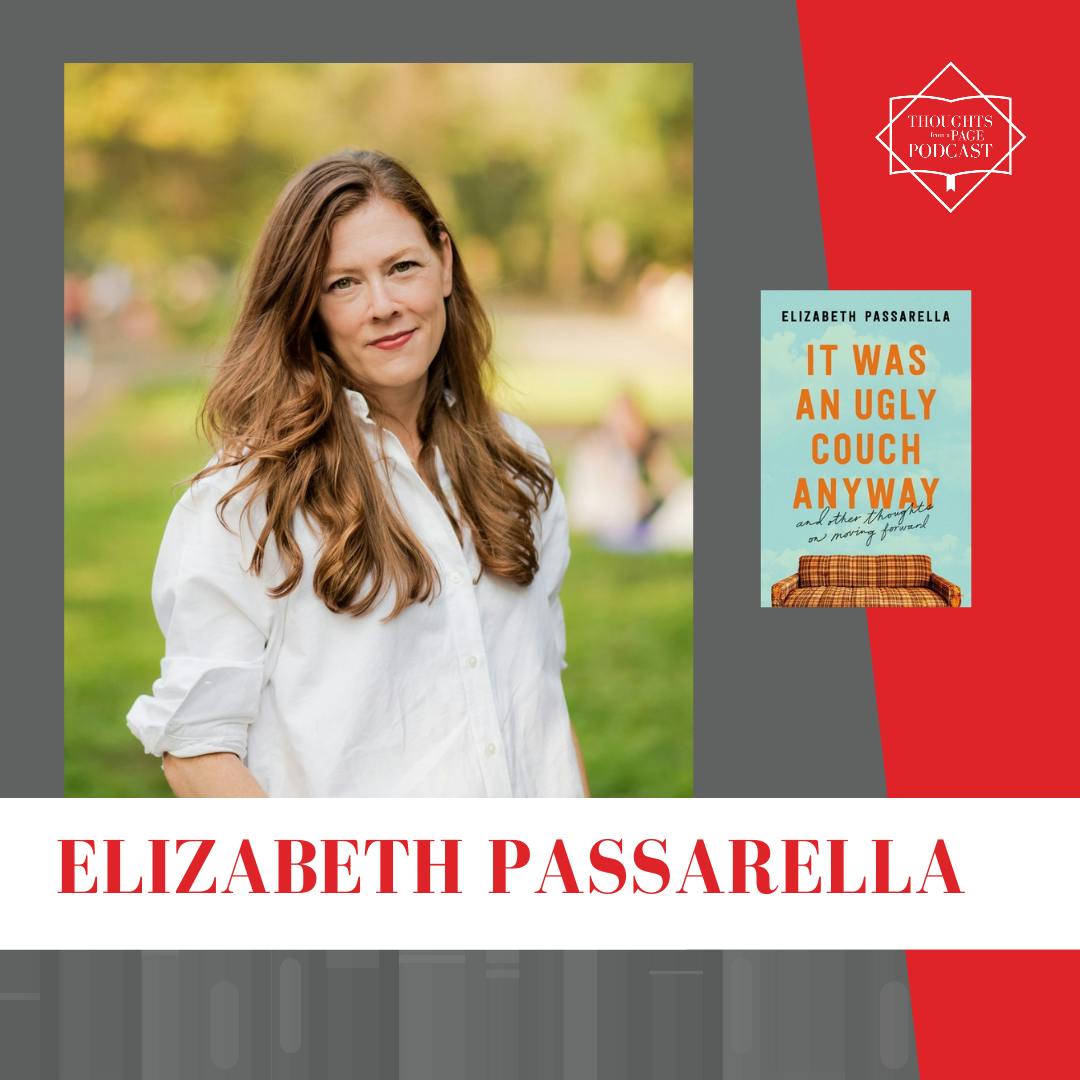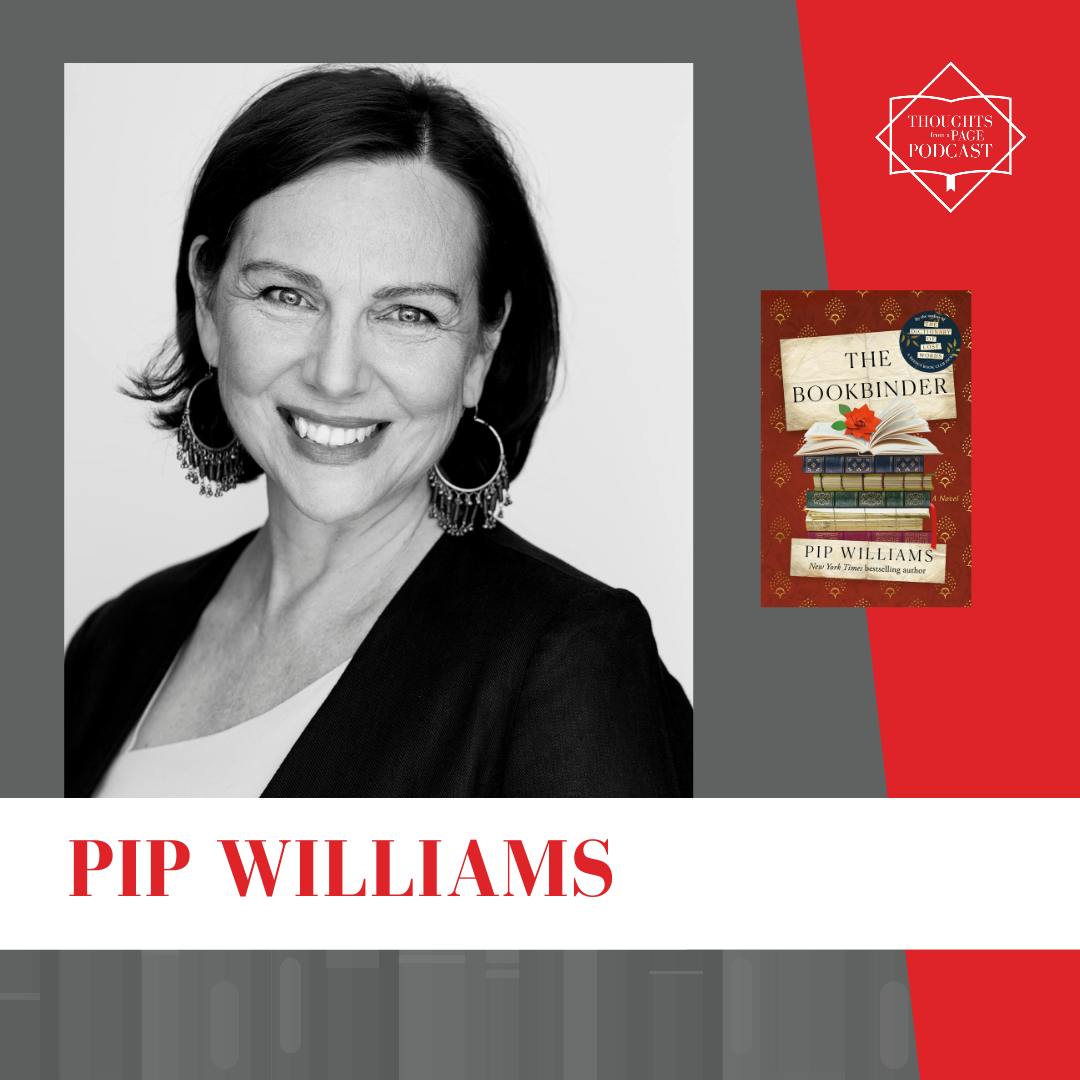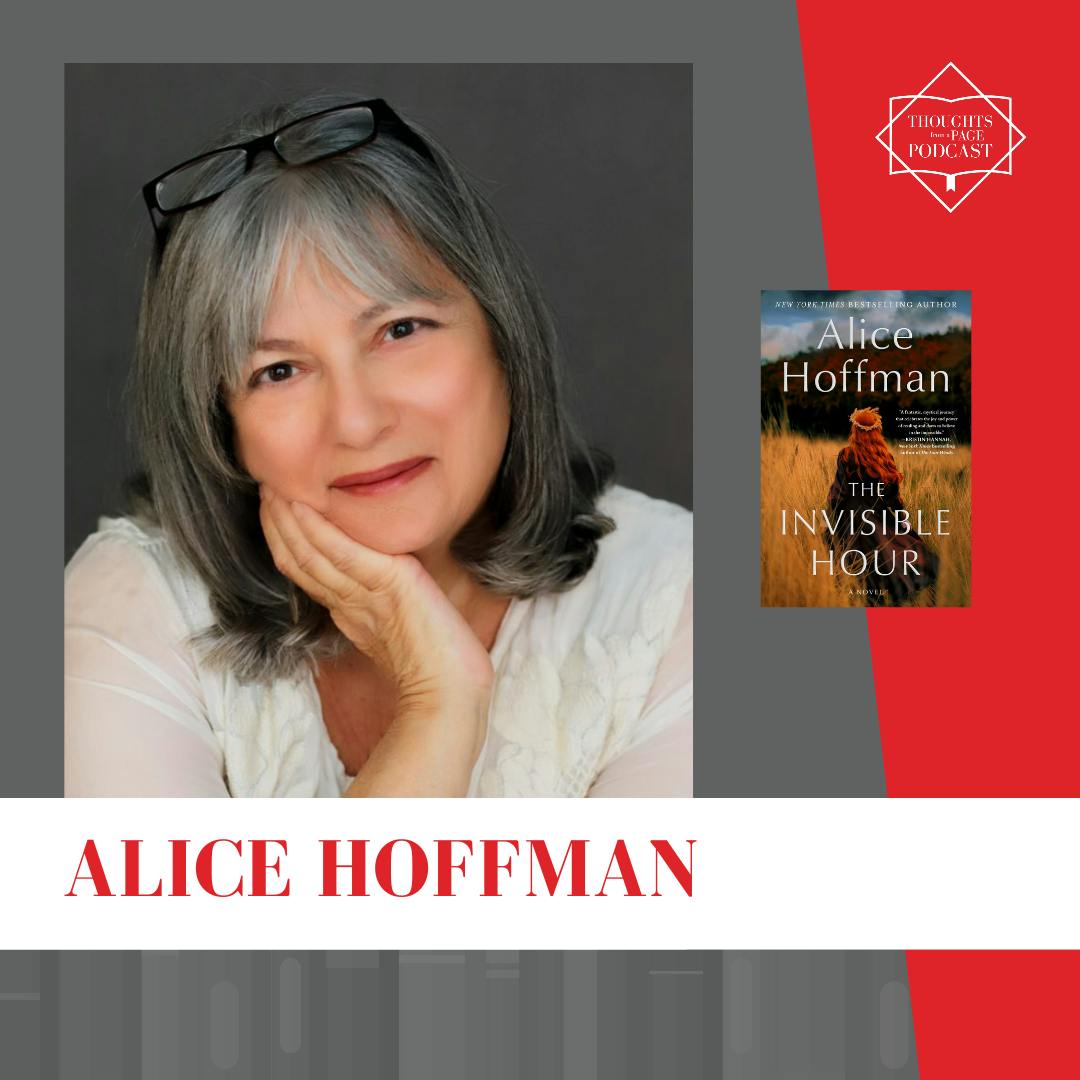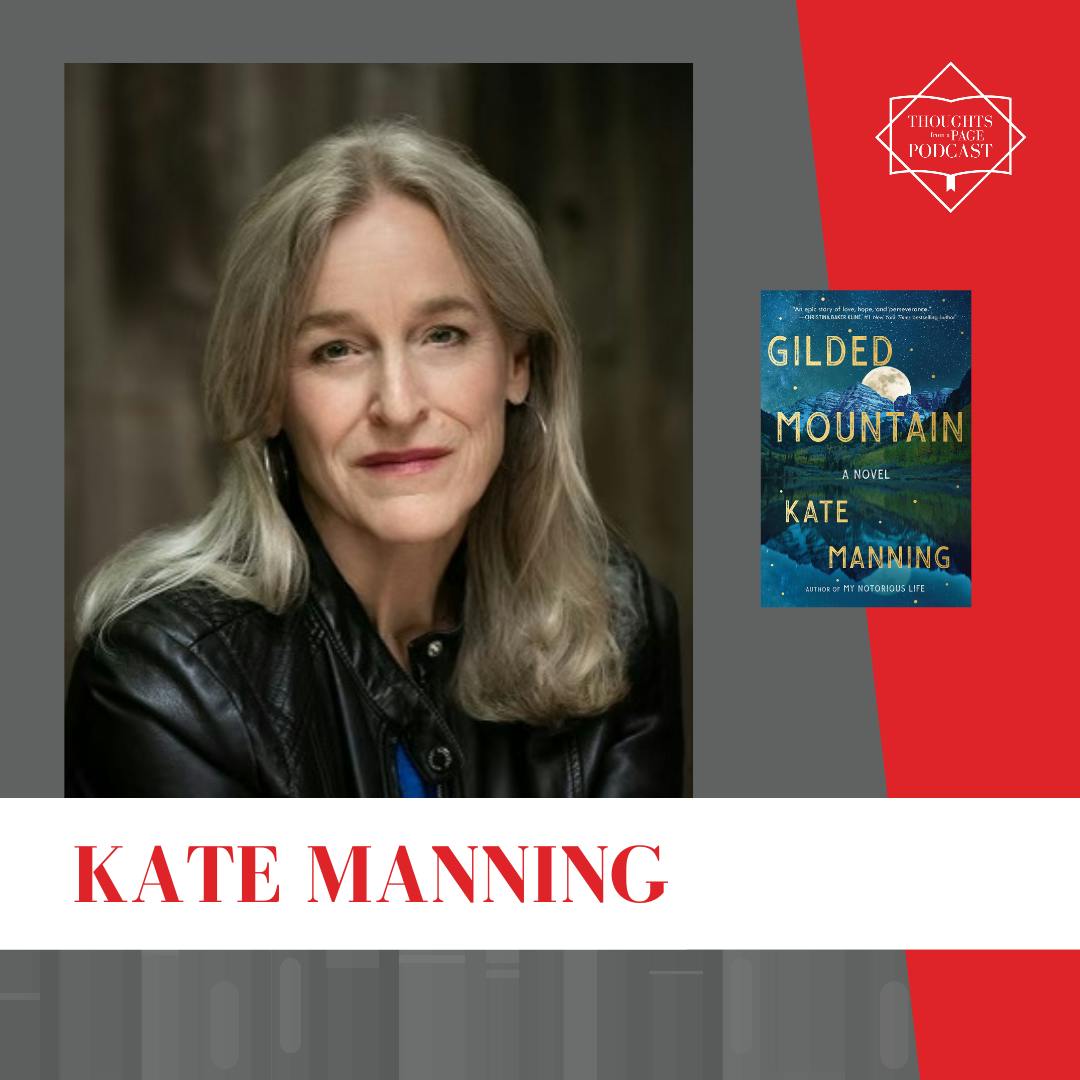
In this interview, Kate and I discuss Gilded Mountain, her inspiration for this story, the character she enjoyed writing the most, including Mother Jones in her book, exploring the many ways women are silenced, how the cover and title came about, and much more.
In this interview, Kate and I discuss Gilded Mountain, her inspiration for this story, the character she enjoyed writing the most, including Mother Jones in her book, exploring the many ways women are silenced, how the cover and title came about, and much more.
Kate's recommended reads are:
- Small Things Like These by Claire Keegan
- This Is Happiness by Niall Williams
- Fight Night by Miriam Toews
Support the podcast by becoming a Page Turner on Patreon. Other ways to support the podcast can be found here.
If you enjoyed this episode and want to listen to more episodes, try Natalie Jenner, Judithe Little, Renee Rosen, Adriana Trigiani, and Geraldine Brooks.
Gilded Mountain can be purchased at my Bookshop storefront.
Connect with me on Instagram, Facebook, and Twitter.
Learn more about your ad choices. Visit megaphone.fm/adchoices
[00:11] Cindy: You are listening to the Thoughts From a Page podcast, which is a member of the Evergreen Podcasts Network. My name is Cindy Burnett, and I love to talk about books with anyone and everyone. While listening to my podcast, you will hear author interviews, behind the scenes conversations about various aspects of the publishing world, theme discussions with other book lovers and more. For more book recommendations and a complete list of all of my interviews, check out my website, ThoughtsfromaPage.com, and follow me on Facebook and Instagram at @thoughtsfromapage. In 2022. I would love for you to join my Patreon group. I offer at least two bonus episodes a month and a monthly advanced read and prepublication author chat. For those on Facebook, I host a special Patreon Facebook group where we all chat books. Thanks so much to those who already participate, and I hope you will consider joining us. Today I am chatting with Kate Manning about Gilded Mountain. Kate is the author of the critically acclaimed novels my Notorious Life and White Girl. A former documentary television producer and winner of two Emmy Awards, she has written for The New York Times, The Washington Post, The Los Angeles Times, Book Review, Time, Glamor and The Guardian, among other publications, she was a cofounder in 2018 of the Proxy Project, a get out the vote effort designed to increase youth voter turnout. She has taught creative writing at Bard High School Early College in Manhattan, where she lives with her family and a dog named Moon, who walks her regularly. I selected this book as one of my fall favorites in my recent episode with Elizabeth Barnhill. It is a great read. I hope you enjoy our conversation. Welcome, Kate. How are you today?
[01:49] Kate: I'm excellent. I'm very happy to be talking to you, Cindy.
[01:53] Cindy: I'm so glad you're here because I loved Gilded Mountain and I cannot wait to talk with you about it and have others hear about it. And you've had wonderful press, a starred review from Publishers Weekly, and a blurb from Erik Larson.
[02:06] Kate: Yes, I've been so lucky. Authors are so generous. Christina Baker Kline and Mary Beth Keane, they've all come through with really nice, helpful words. I think it's really a great thing that authors do for each other to help get the word out about other books.
[02:26] Cindy: I agree completely. And you definitely have an A list group there blurbing your book. I usually start out with authors giving me a synopsis of the story for those that won't have read it yet. Would you like to do that now?
[02:39] Kate: Okay, sure. Gilded Mountain is set in the invented town of Moonstone, Colorado, in high in the mountains. It's a marble quarrying town and it's the story of a young woman who is really fighting to find her own identity in her own voice in a really hostile climate. It's 9000ft in the snowy mountains and she lives in fairly severe conditions. Her father is a laborer in a marble quarry, and she's very drawn to the luxury of the coal mining magnet that lives nearby and the household there. So in some ways, you could say it's the education of Sylvie Pelletier. She's the daughter of French Canadian immigrants, and she finds a way to leave her snowbound cabin and apprentice herself to a very feisty, fierce newspaper editor, a woman, and get herself a job in the local manor house. And so her adventures unfold from there. So sometimes I think the book is like Downton Abbey, maybe set in the Rocky Mountains, or I sometimes also think of it as a subverted Cinderella story.
[04:03] Cindy: I love both of those analogies. But you talk about the landscape being inhospitable, and I thought that was one of the things early in the book when they're first arriving and what it takes to just get there and then where they're living in the midst of all of that. It would just have been such a hard existence.
[04:21] Kate: I think it must have been. And I really rely a lot on images. Maybe that's because my mother and my grandmother were both painters. But I found a lot of astonishing historical photographs of workers in these conditions. But I couldn't find any women until I finally found a picture of women and children standing up to their knees in snow in a place called Quarry Town. And I thought, okay, so the women really were there. But when you want to find a woman's story, you have to look in the shadows or read between the lines. Because one thing I like to do is to try to reclaim a woman's story from the past. We don't have many first person accounts of what it was like to live, say, in conditions like that, or what women's lives were like and what was the texture of their lives. And so there's a lot of that here in this novel, I hope.
[05:20] Cindy: It definitely seems like you have to dig deeper to find the women's stories.
[05:24] Kate: Yeah, I think so, too. And so finding first person accounts, I relied on diaries and a few memoirs, but really, then you have to piece together questions that you may have about how did you get water or food or do the laundry or have a baby in a tiny cabin covered with snow? And a lot of that is your imagination, because I don't want to feel that the research bosses the story around too much. It has to feel organic to the characters.
[05:59] Cindy: I agree with that. And that actually leads me into my next question how you came up with the idea for this one, and then the amount of research you must have had to do.
[06:08] Kate: Well, the story of how I found it, it's really something. I was foraging around in my parents attic, and I found this long panoramic photograph of some people standing in front of a mountain range, and it said, National Retail Monument Dealers in Marble, Colorado. And I carried it down and dusted it off and said to my dad, Why do we have this, and who are these people, and what is this? And he said, oh, I don't really know. I think one of the guys in it is my grandfather, and I think he had something to do with quarrying the marble for the Lincoln Memorial. And I said, what? Didn't know any of that. I said, what else do you know? And he didn't know much. His own dad had died when he was young, so a lot of the stories were just lost. And so I started looking around, really, years later. I just liked the picture, and I just discovered this incredible history in this little town and borrowed a lot of it and some of it and changed it around. For the purposes of fiction, you go.
[07:18] Cindy: And visit these places, and they're beautiful, and you just do not think about the work that went into getting the marble there or the granite or whatever they're made from. And I thought a lot about that as I was reading your book.
[07:31] Kate: Yeah, you don't think about where the mosaic tile on your bathroom floor comes from, maybe. And when you really dive in, I mean, my dad said one reason he didn't know is he said, I'm just not that interested in rocks. And I thought, yeah, me either. But then when you see how people were hewing this stone out of a mountainside with treacherous slopes and porting it down, you know, steep, steep grade of slope through 14 or 20ft of snow. And in those days, the workers were asked to shovel the track two or four times, 3 miles of train track to get it or, you know, yeah, rail track to get it to the shipping location, finishing mill. And they weren't paid for that. They were only paid for getting it out of the mountainside. And so the conditions were terrible. And we don't know our labor history, really. We don't know what unions accomplished for workers. And so that history sees me by the throat, and there's a lot of very dramatic stories that comes out of it. It's astonishing, for sure.
[08:48] Cindy: And those company towns, I mean, it's not something we see as much today, or at least they're not called that. I want to talk about that a little bit later. I think there are still towns that are pretty much dominated by a company who provides money for the parks and the schools, and so people feel beholden to them. But they really used to call them company towns back when your book was set. And so I think it's interesting because they act like they're taking care of all of these workers, but they don't pay them for things like sweeping the train track. But also they charge a ton of money for the food. And so you are in debt because you only can go to the company store and you owe rent for the buildings that are owned by the company. I mean, it's a terrible, terrible situation for a worker.
[09:28] Kate: Yeah, it really is. And so if you break your leg and you can't work anymore, you and your whole family are chucked out of the company-owned cabin or shack and good luck to you. You don't have a pension. You don't have workman's compensation and those things that unions fought for. And so all of that is somehow, I think, forgotten in a lot of our conversations about work today. But there's a lot of similarities between then and now and the wealth gap. There were these coal barons and railroad barons and people with huge amounts of money running company towns and running mining camps, et cetera. And they paid their workers almost nothing and fought to keep it that way.
[10:18] Cindy: And didn't care when people passed away. It was like they were all just expendable.
[10:22] Kate: Right, exactly.
[10:23] Cindy: But it did remind me a lot of, like, the Dupont story that came out of West Virginia in recent times and the tobacco companies in North Carolina where these companies are providing the jobs for most of a town, a lot of mill factories up and down the East Coast. And I think people are really hesitant to speak out against these companies because that's their bread and butter. That's where they're getting their work, that's how they're getting paid. A lot of the things in the town are provided by these companies. So there were a lot of parallels to today. But also, thankfully, there has been a lot that has changed due to the unions. In terms of things, you mentioned workers comp and paid time off and all those different types of things.
[11:03] Kate: And that's exactly what Sylvie, the young woman, that's her struggle. She sees things. She's a very sharp eyed witness and she's, of course, very drawn to the wealthy family that owns the mines and has camps all over the country. She's fascinated and she's very clever and gets herself a job in the working for them. But she knows also the other side of life and she has to decide where her loyalties are, where her love is, where does she will she speak out? And she has several mentors in the course of the story who provide different choices. The choice to go along and get along and make yourself a comfortable life or to speak up. And how does a young woman who's trained to think that silence is golden and be seen and not heard and to be subservient and to how does that young woman learn to say, no, this is wrong, or decide what to do about it?
[12:08] Cindy: You have a wonderful reading guide for the book that is on your website and I was paging through that before we chatted. And one of the question talks about the various women who serve as role models for Sylvie. Who do you think ended up holding the most sway in terms of her mentors?
[12:23] Kate: Well, I don't want to give anything away, but there's a countess or a woman who purports to be a countess, and she's a very fun character. There is this newspaper editor named K. T. Redmond. She was a woman editor in a time when women couldn't even have the vote. And she's based on a real character that I found in Marble, Colorado. She was very pro-labor, pro women suffrage, and very anti-business. And by writing unflattering things about the company, she suffered pretty severe consequences. So Sylvie sees these two women, and she gets to meet the labor leader, Mother Jones, who is just an astonishing figure from our history. And she sees that there are other ways than just keeping quiet. I think all of the women influence her in different ways, so you'll have to read the book to find out.
[13:26] Cindy: Well, I definitely don't want there to be any spoilers. I loved having Mother Jones in the story. That had to be so much fun to bring her in and write about her.
[13:37] Kate: She is so just so delightfully frank. She used her very theatrical abilities to draw attention to I mean, workers loved her. That's why they called her Mother. She called them her boys. And she would sometimes browbeat them like a mother does, like, you guys. Stand up for yourself. Stand up straight. But she had nicknames for the Oligarchs. They were blood sucking Beeches or the Pinkerton Guards were lap dogs. And the ladies who profited off of this money were society poodles or butterflies. So she really had a language that resonated with people. And she would say she would face up guys, face down guys with guns and say, what are you afraid of an old lady? She was 80 some years old and looked like everyone's grandmother. She looked just darling, but had quite a command. And her speeches, I could hardly decide which ones to incorporate into the novel.
[14:45] Cindy: And she lived to be a hundred. I was just amazed by that.
[14:49] Kate: She may have added a little few years just to massage her legend a bit. She was very conscious of her image, I think. So she was always maybe we don't really know how old she was.
[15:04] Cindy: Even if you subtract five years from that, she still lived a long time, especially for that time period.
[15:09] Kate: Yes, exactly. She's wonderful, and I couldn't get enough of her. She's terrific.
[15:15] Cindy: Well, who did you enjoy writing the most and who did you identify with the most?
[15:20] Kate: I think that a lot of novelists might agree that every character has elements of oneself, and then you give characteristics of your family or your life or your own life or people that you observe closely to characters in the book. So I think I enjoyed writing the newspaper editor a lot. I really loved writing the Countess. I can't say I identified with the Countess. She was fun to write. So they all present their challenges, I think, but they were all fun to write.
[15:57] Cindy: And was anybody particularly hard to write?
[16:00] Kate: I actually think the protagonist, Sylvie, was difficult for me because I'm very interested in women's silence. There are so many things about which we're not supposed to talk. And so she comes from a very she's French Canadian. She's raised in the Catholic Church. She's taught to take a backseat and not take risks and not to speak up. Her mother keeps telling her that complaints are the seeds of misery, and so don't complain, just endure. And so it was hard for me because I kept waiting. I knew that she was going to do something, and I knew she was going to speak up. But getting her there and getting her to learn how to do that was hard.
[16:48] Cindy: It goes against the grain for her initially, because of everything she has been taught at home and not wanting to disappoint her mother.
[16:54] Kate: Yeah. And I think it goes against the grain for a lot of women, and we see that now, where women have been told not to talk about certain personal things, so nobody knows exactly what women go through, say, as mothers or giving birth or whatever, and so we need to speak up.
[17:14] Cindy: I think that's right. And it seems like there's a push in that direction and that things are more open than they used to be, but we have a ways to go.
[17:22] Kate: Yeah, I would agree with that for sure.
[17:24] Cindy: Well, what surprised you the most when writing Gilded Mountain?
[17:28] Kate: I think what I was saying before, that there's so much of this history that we didn't know, and I kept finding incidents that just stunned me. For the Low massacre, for example, in Colorado, when Rockefeller there was a strike at a Rockefeller coal mine and workers were living in tents in the snow for months. And then because there's such a symbiotic relationship between the very wealthy and powerful and the government, they sent in National Guard troops and eleven women and children lay dead when the shooting started. They sent in tanks. And I didn't know any of that. I didn't know it. And so when you are finding things out and your eyes are opening with surprise, you think, well, if I'm interested in this, then others will be, too, because it's new.
[18:21] Cindy: Well, the other thing I was interested as I was reading your book was your portrayal of the Pinkerton. You call them officers men, because you always hear about how they were sort of the first police officers, and they kind of came in to set order, but you don't have as positive a portrayal of them as you sometimes see.
[18:37] Kate: Yeah, we know them that you know, that they captured the capacity in the Sundance Kid. I think I could be wrong about that. But no, they were private security guards that companies would hire to, quote, unquote, keep order.
[18:50] Cindy: Right.
[18:50] Kate: And to throw out the quote unquote agitators and quote unquote thugs. But, you know, those are euphemisms for workers who are trying to organize to make a better life for themselves. And so they're not actual police officers. They're not instruments of American law. They're private guards hired to kick out anyone who looks like a union organizer. To say, well, you're on company property. You must leave. Don't hand out that pamphlet. Don't read that newspaper. And so they're the eyes and ears of management. They're the eyes and ears. And so. Yeah, like Mother Jones would call them blood sucking weasels. So, yeah, I think that the Baldwin felt scarce and the Pinkertons were not beloved at all by labor and by workers. There were a lot of clashes between.
[19:52] Cindy: Them, and I knew they were private, but I guess I've encountered them in stories where they were maybe brought in to help solve a crime or to track someone down that was missing. I just didn't realize their role in the labor movement. Or their role in trying to prevent the labor movement. So that was new to me.
[20:09] Kate: Yeah. Well, I hope you know, again, we're talking a lot about this history, and I really hope that the novel wears the research and the history lightly and in an organic way so that I don't like historical fiction where you feel you're being schooled. This is a story that I hope has a page turning quality and that you want to find out what happens to the characters and how they will solve their problems. I hope that's the case.
[20:40] Cindy: Most Definitely. I love historical fiction where there is a very powerful story. But while I'm reading the powerful stories such as yours, you're incorporating all of these cool facts that I didn't know. So for me, that's why it's one of my favorite genres, because I'm not reading a history textbook, and it's just dry history, one fact after another. But instead there's a powerful story, but all throughout it. Not in an info dump manner, but instead woven in naturally through the pages. I'm learning all sorts of cool facts, and those are the things that often stick with me as well as the character stories.
[21:13] Kate: Yeah, I think that's right. Cindy, I thought a lot about a quote I found from E.L. Doctorow, and he said, a historian will tell you what happened, but a novelist will tell you how it felt. And I think that's right, because as a novelist, I felt enlivened and inspired by this history. But I also felt liberated to make things up and invent things and to add a lot more texture to just the lives of the characters that you can find in a history book. And great historians can add that, too. But to not have to stick to an absolutely factual base that's liberating.
[22:00] Cindy: Absolutely. And creating these wonderful characters that your readers are going to bond with and, as you mentioned, keep turning the pages to figure out what happened.
[22:09] Kate: Yeah.
[22:10] Cindy: Well, let's talk about your gorgeous cover and the title, how both came about.
[22:15] Kate: Well, the COVID I feel so lucky. It's just this glittering moonlit mountain with a lake and starry reflection and snow on the peaks, and it's just how I envisioned it. I wanted it to be that way. The title was difficult to come by. It had a working title. It had another working title. And we batted around long lists of possibilities which would be easy to encapsulate and get you excited about a story that you might read. And it's really hard. You find sometimes that a lot of the good titles are taken like that. But once you start trying, you do see that that's true. But Gilded Mountain really comes from that edge. Sometimes if you see a mountain top with a little when the sun is rising or setting, you see it's just etched with an outline of guilt. Like the sun hits it just right and it looks beautiful. But the peak is dangerous and it may hide a very rocky or difficult existence up there. And so it seemed right for me because Celeb is really attracted to this beautiful, shiny luxury that she sees. But underneath it is this rocky mountain, these stones, and what it takes to get the mountain. So that's Gilded Mountain.
[23:52] Cindy: Well, I think it's a wonderful title. What was one of the working ones?
[23:56] Kate: Sure, for years. It took me a long time to write this novel. So for years. The title was beautiful. Radiant Things. And that comes from a quote by the labor activist Emma Goldman. And she said, I want freedom, the right to self-expression and everybody's right to beautiful, radiant things. And I just loved I think it was because I loved the word radiant. And so that was the title for a long time, but it didn't quite work for the final book.
[24:32] Cindy: I'm thinking about that title, and I like the word radiant, too, and it's not one you see often in a book title, but it sounds more of like a contemporary story. I think it's so interesting how titles can really signal things. But I do like it.
[24:45] Kate: Yeah, I liked it, too. It's hard to let it go. But I think the conversation that we have with editors and friends and readers, early readers, is very helpful because you don't have perspective. Sometimes when you're writing, you don't know whether something is working a passage or not. And I'm grateful to people who've read the book in early stages makes a big difference.
[25:09] Cindy: I also think you pick a title like that, which you sounded like you picked from early on, and you kind of get attached to it. You're writing the book, you take all this time. So you get that far and you're thinking, this is the title I had for it. And sometimes it is a little hard to let that go.
[25:23] Kate: It really is. And all your files in your computer and every draft is named that it becomes very hard to know where anything is.
[25:33] Cindy: Well, that's true, too. It'd be like renaming your child at age ten or something, you know?
[25:37] Kate: Yes.
[25:38] Cindy: Well, I was just so happy that the COVID looked like it did because I've been one of those a little weary of all the women facing away in historical fiction. And so it's just really great to see all of these publishers working on more creative covers that still tie in beautifully with the book but are a lot more original.
[25:56] Kate: Yeah, I said when it came time to design a cover that I did not want a woman in a period hat facing away from the camera or a woman's back turned just or a silhouette, because I do think those things have become trite. Many of them are very beautiful. Can't take it away from individual covers. But you're right, you do start to see trends in fashions and cover art. And I think that Jaya Michelle, who designed this one, just does beautiful work. Look at her. Look her up. And her covers are stunning.
[26:32] Cindy: I certainly will, because I think this one is stunning. Before we wrap up, what have you read recently that you really liked?
[26:39] Kate: Oh, I'm always reading books that I like. And sometimes I got to say it's like what you call a busman's holiday. When the bus driver takes a bus to vacation, you read in a different way and you can see what the writer is trying to do. But a couple of things I've read that I like, I like a lot of Irish writers, and so I just read small things like these by Clare Keegan. It's a very slim novel which has been a nominated for the Booker Prize, I believe. And another one called this is Happiness by Niall Williams. And that one is a portrait of a small town in Ireland. And what I love about it is the sentences because they are just so beautiful. And I picked one out to read to you. He says, in the fields the cattle made slow witted by the rain listed their wrapped and empty faces, heavy loops of spittle hanging as though they ate watery light.
[27:43] Cindy: Oh, I love that.
[27:44] Kate: And it's just every page there's just a beautiful gem like that. And you find yourself underlining in your copy because it's so pretty.
[27:54] Cindy: Well, I can see why that would appeal to you because that's what I felt like when reading your book, that your prose is just beautiful and there would be sentences that I would have to go back and reread. And I thought you just the way you string words together is pretty magical.
[28:08] Kate: Oh, thank you. Gosh, that's the highest compliment a writer can earn. Thank you so much. I like books, and I love words and playing around with them and trying to find that sharp and precise image that will be startling and different, differently, and make you see something in a way you might not have seen it before.
[28:31] Cindy: I agree with that. And I think it also makes a story more vivid. Like, I can envision the things happening when the prose is written that way.
[28:40] Kate: Yeah, we all find very convenient shorthand ways sometimes in cliches that describe what we're feeling or going through. And to find a new way to say it that's just as precise or just as interesting is a challenge for writers. But one that I enjoyed. Another book I like a lot is called Fight Night by Miriam Toews, and it's really a delightful, hilarious story of a young girl who's caring for her grandmother. And this author just writes the strongest voices, and I love a really strong voice on the page. She has uses her own childhood, the sort of patriarchy and oppression of her religion to talk about in this book, how to survive grief. And it may sound strange to think that a book could be funny about surviving grief, but the voice of this young narrator is just so fresh and in love with life and with her family that you can't help it, you understand their perseverance. And I really always found the same thing, nuggets of wisdom all over the place that you're underlining. And it's very refreshing, the story. She has a new movie coming out based on a book she wrote called Women Talking that stars Fran McDormand, and I'm looking forward to seeing it.
[30:11] Cindy: I like Fran McDormand. She's awesome.
[30:13] Kate: Yeah, she is. So I could recommend all of those and many more if we had all day.
[30:18] Cindy: I know that's the thing about book recommendations. I feel like sometimes I get started and then I'm like, I'm never going to stop. Well, Kate, thank you so much for joining me today and the Thoughts From a Page podcast. I really enjoyed speaking with you and I can't wait for everybody to read Gilded Mountain.
[30:34] Kate: Oh, thank you, Cindy. I love your podcast, and I think it's great that we have such good book talk going on here. Thank you so much and I really appreciate your inviting me on your show.
[30:47] Cindy: Thank you so much for listening to my podcast. If you liked this episode, and I hope you did, please follow me on Instagram @thoughtsfromapage, consider joining my Patreon group to access bonus content and support the podcast, tell all of your friends about the show and rate it or subscribe to it wherever you listen to your podcasts, I would really appreciate it. The book discussed in this episode can be purchased at my Bookshop storefront, and the link is in the show notes. I hope you'll tune in next time.

Kate Manning
Author, Gilded Mountain
Kate Manning is the author of the critically-acclaimed novels My Notorious Life and Whitegirl. Her new novel, Gilded Mountain, will be published November 1st, by Scribner Books. Publishers Weekly’s starred review called it “Steller. This is one to savor.” Novelist Christina Baker Kline says “Kate Manning is a master storyteller. Gilded Mountain is so immersive, so richly imagined that reading it feels akin to time travel. The dreamers, strivers, and opportunist who populate this tale possess a uniquely American desire to reinvent themselves, whatever it takes. An epic story of love, hope and perseverance.” The New York Times called My Notorious Life “an action-packed, thought-provoking page-turner.” O Magazine called it “daring…astonishingly current.” NPR’s Kurt Anderson, host of Studio 360, said: “It’s a fantastic yarn…absolutely Dickensian.” A former documentary television producer and winner of two Emmy Awards, Kate has written for The New York Times, The Washington Post, the Los Angeles Times Book Review, Time, Glamour, and The Guardian, among other publications. She was a co-founder in 2018 of The Proxy Project, a get-out-the-vote effort designed to increase youth voter turnout. She has taught creative writing at Bard High School Early College in Manhattan where she lives with her family and a dog named Moon, who walks her regularly.
























